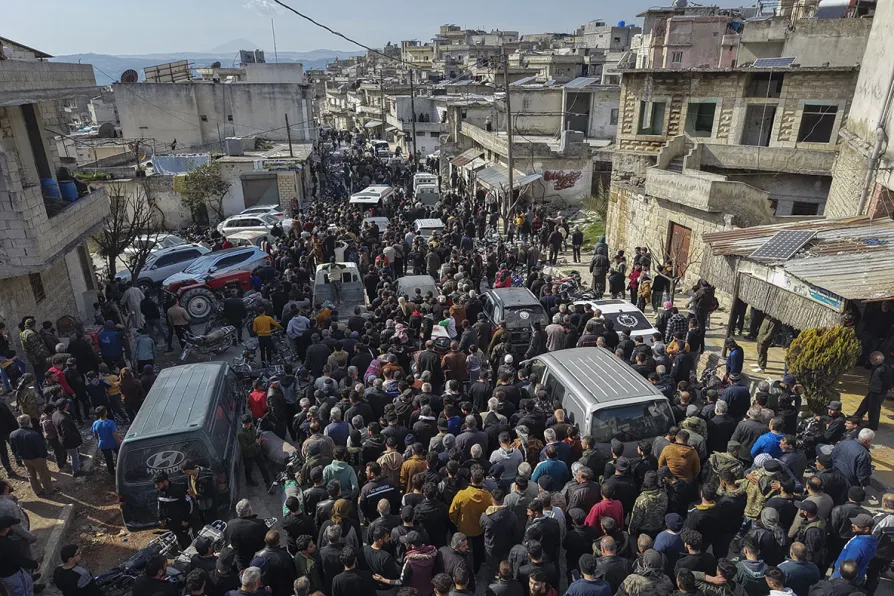More than 1,000 dead in Syria after clashes between government forces and Alawites

 Relatives and neighbours attend the funeral procession for four Syrian security force members killed in clashes with loyalists of ousted President Bashar Assad in coastal Syria, in the village of Al-Janoudiya, west of Idlib, March 8, 2025
Relatives and neighbours attend the funeral procession for four Syrian security force members killed in clashes with loyalists of ousted President Bashar Assad in coastal Syria, in the village of Al-Janoudiya, west of Idlib, March 8, 2025
THE DEATH toll from days of violence between Syrian security forces and loyalists of ousted President Bashar al-Assad has risen to more than 1,000, a war monitoring group said on Saturday.
The Britain-based Syrian Observatory for Human Rights said in addition to 745 civilians killed, mostly in shootings from close distance, 125 government security force members and 148 militants with armed groups affiliated with Mr Assad were killed.
It added that electricity and drinking water were cut off in large areas around the city of Latakia.
Similar stories














